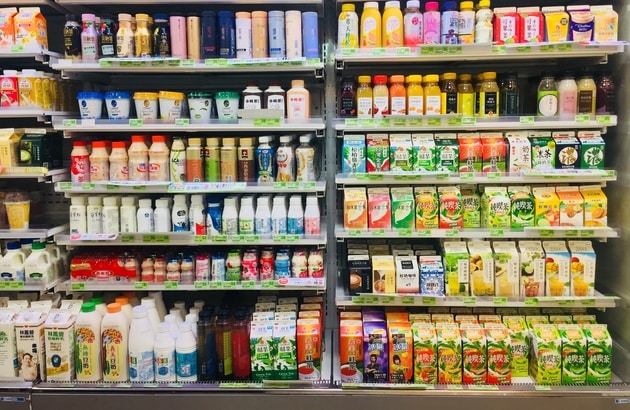Guest Writer Submission
Life in Taiwan is Too Sweet to Be Healthy

Source:Dimitri Bruyas
Taiwan is a country of convenience stores, lunch boxes and street foods. Yet such convenience has a cost: an increase in obesity. What can we do to avoid consuming excessive sugar while living in this “sweet island”?
Views
Life in Taiwan is Too Sweet to Be Healthy
By Dimitri Bruyasweb only
Taiwan is a country of convenience stores, lunch boxes and street foods; a group of islands where the cost of groceries is disproportionately high compared to the cheap and abundant, but ultimately unhealthy, alternatives. Such extreme convenience has a cost, however: an increase in obesity that is symptomatic of an overworked, sedentary society in which most meals are eaten on the side of the road, at school or in the office.
According to figures from the Ministry of Economic Affairs, Taiwan boasts the second highest ratio of convenience stores per population density in the world with 10,662 stores in business last year. This number has translated into an average of one convenience store for 2,211 people across Taiwan, compared with one store for every 2,248 people in Japan and one for every 1,452 people in South Korea, which is equally worrisome.
Most people don’t know; obesity is not an illness that can be cured with a pill -- an idea Taiwanese love to pop at the first sign of any discomfort; it is a growing social problem that requires radical changes in habit. To begin with, Taiwan society needs to look for new models beyond Asia and “slow down.”
The gastronomic movement that began in Italy in the eighties encouraging the slow cultivation and consumption of food could be a great source of inspiration.
For sure, not everyone can have the luxury of eating organic food every day but if an appreciation for cooking and knowing the source of ingredients can be cultivated, then perhaps this will influence parents’ decision on what to feed their children. Remember, it has been more than 13 years since the government banned the sale of junk food on school premises in 2005, but junk foods from Taiwan and abroad are still widely available around school grounds, just outside the school gates sometimes.
The John Tung Foundation recently pointed out that some beverage chains in Taiwan often post misleading information on the sugar contents of take-away tea drinks, leaving consumers in the dark.
The results of a survey of 31 stores of 18 beverage chains and 67 kinds of drinks conducted between May and June show that the sugar and calories in most drinks are systematically understated, thanks to a regulatory loophole that needs to be eliminated.
Under existing regulations, the foundation said that stores do not need to include the added ingredients to the base tea drinks, such as tapioca pearls, red beans, jellies, or other toppings, among the nutritional facts. There is, therefore, little wonder that one of the stores surveyed sold tea with tapioca pearls and coconut jelly was shown as having 4 grams of sugar and 16 calories per 100 milliliters of the beverage.
Tests even found that some beverage boasted up to 11.6 grams of sugar and 66.8 calories per 100 ml, far exceeding the posted amounts.
Even more worrisome, the foundation said that a 700 ml cup of handmade tea drinks with extras, such as a bubble tea with tapioca pearls and puddings or a green tea with passion fruit syrup, can contain up to 91 grams of sugar. This is almost twice the maximum recommended daily intake of below 50 grams per day for an adult. Based on its findings, the foundation wants stores to provide accurate nutritional information on their products, by will or by force, if necessary.
The foundation also suggested the adoption of a “sugar tax” to further discourage people from purchasing and consuming unhealthy food. This would be a great initiative for curbing the consumption of sugar among under-age children.
WHO statistics show that there are 43 million overweight children under five around the world and soft drinks are a major contributing factor to this global phenomenon, especially in Taiwan.
As long as the public is not adequately informed about healthy eating or do not have the financial means to buy healthy alternatives, however, pervasive advertising, bargain prices and free children’s toys will continue to take a heavy toll on children’s health.
Edited by HanSheng Huang
About the Author
Dimitri Bruyas is a seasoned reporter, commentator and news editor based in Taiwan. He is also an illustrator, photographer and art book publisher who writes on subjects ranging from business to modern art, design, fine dining and architecture. His work has been published throughout the Asia Pacific region, as well as in Europe and the United States.
This article is reproduced under the kind permission of Dimitri Bruyas. It presents the opinion or perspective of the original author, which does not represent the standpoint of CommonWealth magazine.
Additional Reading
♦ Here are 8 ways to Eat Meat While Saving the Planet
♦ An American Vegetarian in Taiwan
♦ No More ‘Kidney Dialysis Island’







